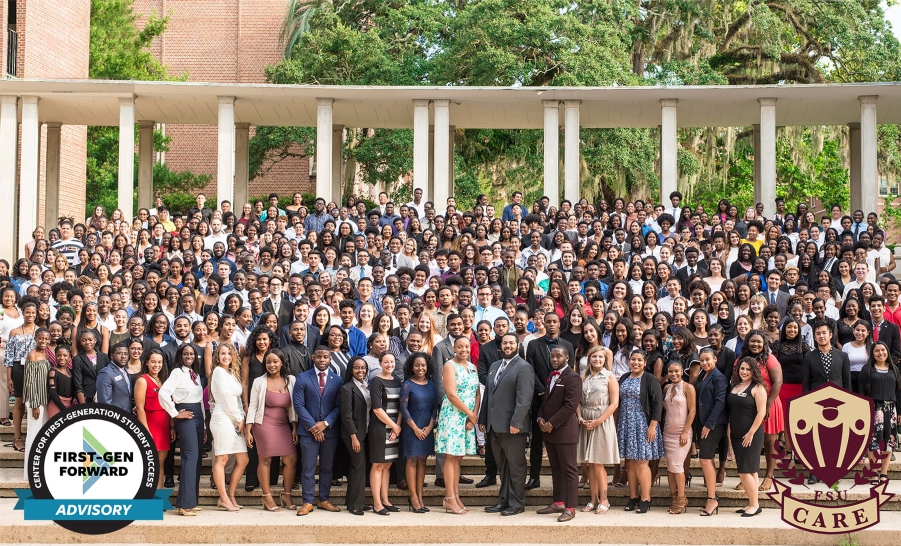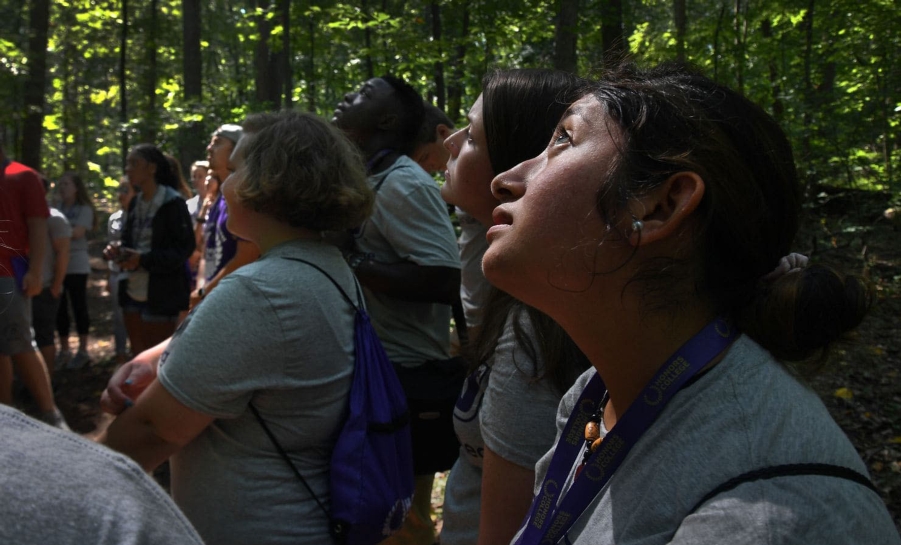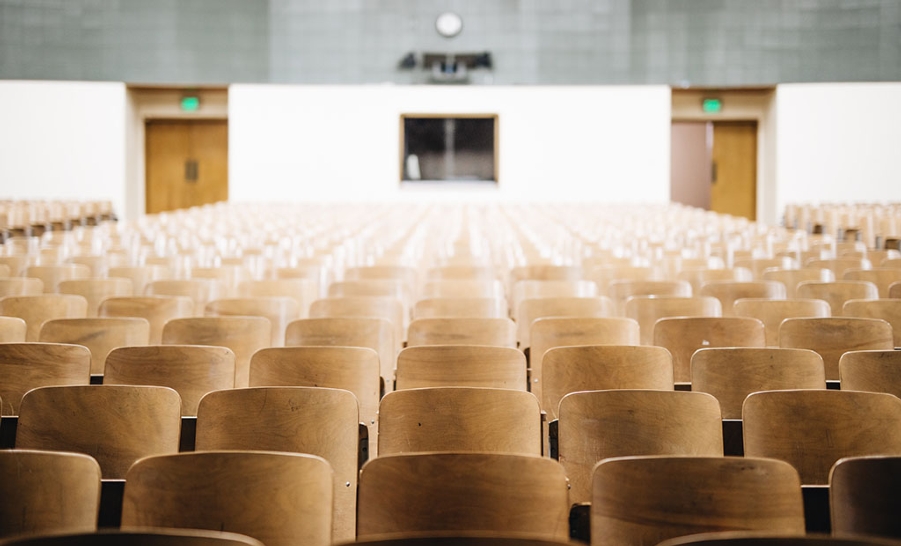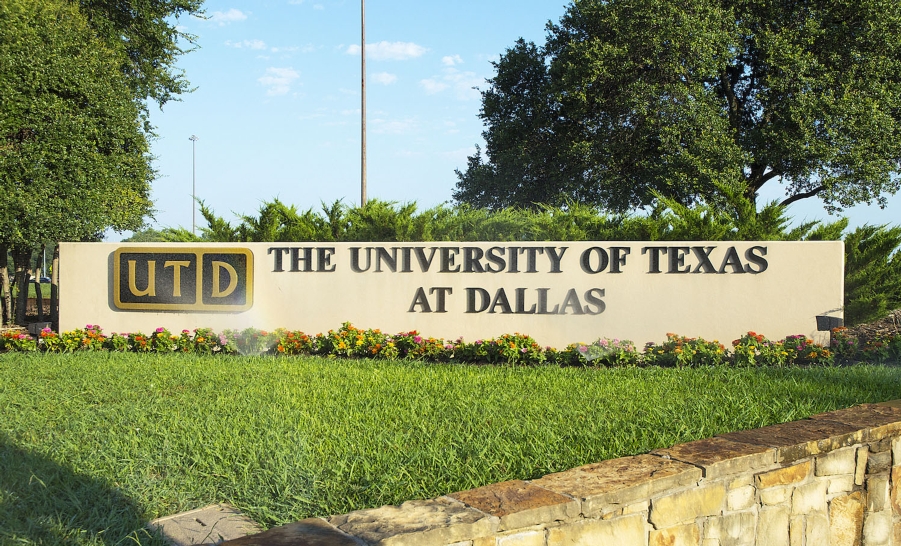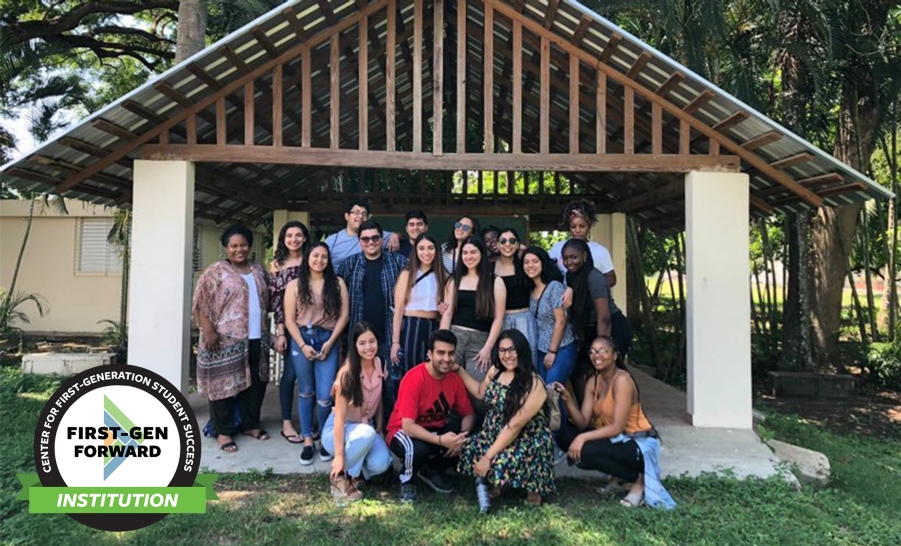First-generation Student Success and Alabama State University
Acquanetta M. Pinkard, Ph.D. & Rolanda Horn, Ph.D., Alabama State University / FirstGen Forward / September 16, 2020
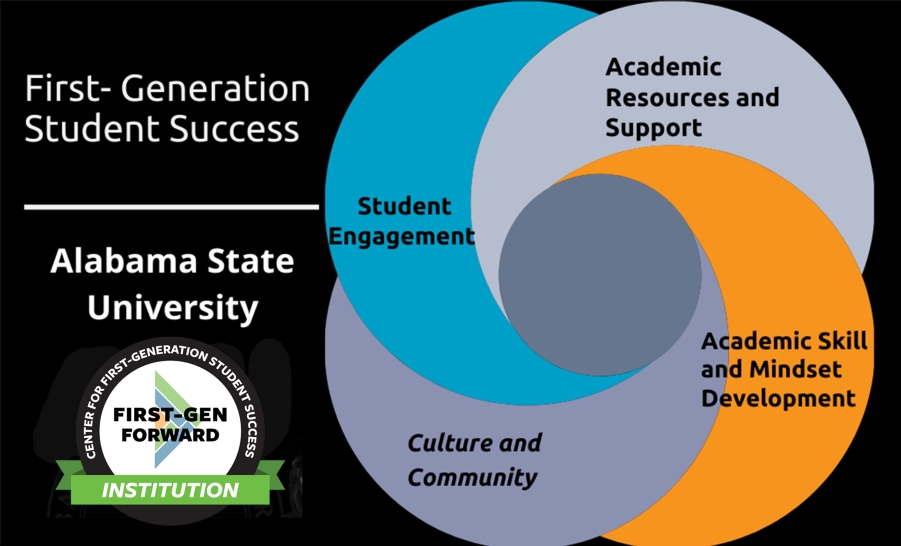
Research consistently illustrates the challenges that first-generation students face are greater than those of their non-first-generation counterparts. Those challenges include, but are not limited to, academic and social barriers to entering and completing college and difficulty navigating admission, financial aid, and post-secondary coursework (Thayer, 2000). With these known barriers, first-generation students are said to be the most difficult to retain and persist toward graduation. Therefore, it is relevant that institutions take into consideration and plan for student retention from the holistic perspective of the student (Post-secondary National Policy Institute, 2018). The student is not just an academic being but a human being seeking an academic career. While the student enters the college door seeking an academic degree, first-generation students often lack the academic and social capital needed to be successful. These challenges and concerns without the proper support and resources have the potential to overpower or diminish the desire for degree attainment. Therefore, institutional efforts for retention are to take students’ needs into account and level the educational playing field, if more equitable attainment rates are to be achieved.
Alabama State University has a rich history in assisting and educating students who are not only first-generation but, also, students who are from families that experience financial challenges. Alabama State University has demonstrated its commitment to ensuring the success of first-generation students through the support of the administration, faculty, and staff, as well as various key departments. For the 2019 academic year, approximately 40% of the student population was considered first-generation (Office of Institutional Research, 2019). Therefore, Alabama State University has planned strategically with first-generation students in mind. Academic resources have been developed to ensure the success of first-generation students through its partnerships with the U.S. Department of Education, as a recipient of the TRIO Student Support Services grant and its newly developed Quality Enhancement Plan (QEP).
The student is not just an academic being but a human being seeking an academic career.
The Student Support Services grant provides financial resources that aid in offering services specifically for first-generation students. The grant has been awarded to the institution over the last twenty years and was recently awarded an additional five-year cycle. The Student Support Services staff prides itself on offering the students a “home away from home” and a place to develop the necessary skills to be academically successful. The services include academic tutoring, which may consist of instruction in reading, writing, study skills, mathematics, science, and other subjects. Also, the program offers intrusive advice and assistance in post-secondary course selection, assists students with information on financial aid and economic literacy, and resources for locating public and private scholarships. The program, also, assists students in applying for admission to graduate and professional programs. Furthermore, personal counseling is provided to assist students in acclimating to career options, working through personal challenges, and persisting toward graduation. With the infliction of COVID-19, feelings of isolation through stay at home orders, and the demands of virtual academic platforms, the mental health of students has become a priority in retention efforts. The individualized counseling, academic coaching, and nudging (Castleman & Page, 2015) components of the program have been paramount in assisting students in acquiring the necessary skills and grit (Duckworth & Duckworth, 2016), to persist toward graduation. Research states when students have the right combination of academic resources, personal support, and social engagement they are likely to persist toward graduation (Post-secondary National Policy Institute, 2018).
Alabama State University also continues to demonstrate a strong commitment to first-generation students through the development of its 2020 Quality Enhancement Plan entitled, “A Journey to Success in the First Year Experience.” The plan focuses on ensuring that first-year, first-time students have a satisfying first-year experience at ASU, develop the skills they need to succeed academically and persist from semester to semester. The QEP incorporates academic and co-curricular activities into the first-year experience based on the research. Research shows that when students develop a sense of belonging, they are more likely to persist and complete their academic careers (Thayer, 2000). Our faculty and staff understand the need to provide adequate support to mitigate the instances of non-return for those students classified as first-generation students.
Alabama State not only begins this process once the student enters the doors but also at the secondary level through its pre-college outreach programs such as Upward Bound, Educational Talent Search, Reading Across America, and its renowned summer Drama and Science Academies, to name a few. These programs are instrumental in shaping the minds of secondary first-generation students as they make college decisions, by offering resources to assist in navigating the college admissions hurdles. Finally, the Academic Center for Educational Success (ACES) has commenced a vigorous retention plan that focuses on identifying students who are at risk for dropping out to provide individualized plans to support these students in their academic careers. Thus, the efforts of the administration, faculty, and staff in planning strategically to assist first-generation are of high priority.
For more information on Alabama State University's approach, please visit their website here.
References
Alabama State University Office of Institutional Research, 2019
Castleman, B. L., & Page, L. C. (2015). Summer nudging: Can personalized text messages and peer mentor outreach increase college-going among low-income high school graduates?. Journal of Economic Behavior & Organization, 115, 144-160.
Duckworth, A., & Duckworth, A. (2016). Grit: The power of passion and perseverance (Vol. 234). New York, NY: Scribner.
Postsecondary National Policy Institute. (2018). First‐generation students in higher education.
Thayer, P. B. (2000). Retention of Students from First-Generation and Low-Income Backgrounds.
